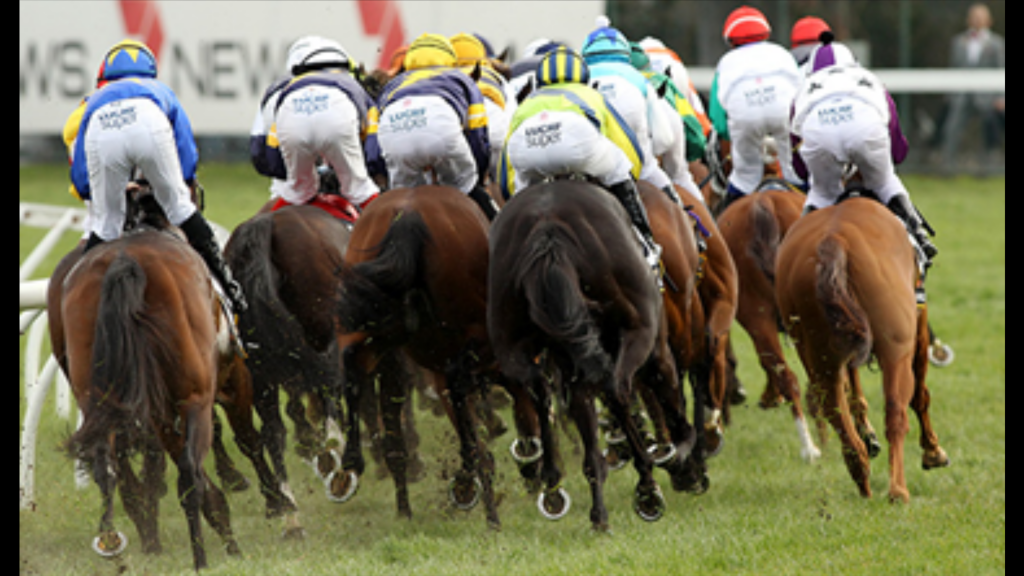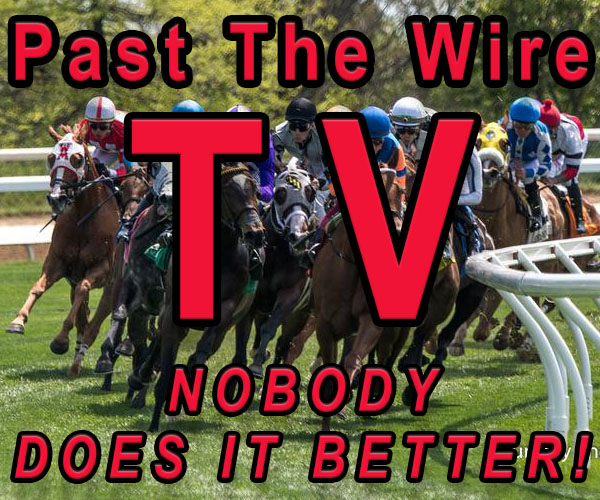
One of my pet peeves in racing is when bettors criticize a jockey, usually after losing a bet for a bad ride, when it was actually a bad trip. For those who don’t know or differentiate, there is a distinct difference between the two. One is avoidable, one isn’t.
I think in discussing this topic we should also remain cognizant of a few key things. First and foremost, being a jockey is no easy way to make a living. It is a tough demanding life, physically, emotionally, mentally, and even dietary. There are no guarantees, no off seasons, and the competition gets tougher with more success and recognition. Staying on top is as hard or even harder than getting there. Then you have to factor in how difficult it is to control a 1200 pound animal, who can be nervous, quirky, unpredictable, and headstrong, at speeds of 35-40 mph when you weigh maybe 110 or 115 pounds. This is no easy task. You also have to realize jockeys have to make split second decisions, and their decisions, in addition to the decisions of other riders, all can impact how a race is run, and ultimately the outcome.
It is easy to get critical of a jockey after a losing wager. It’s almost second nature. Many who do so never bother to stop and evaluate if it was in fact a poor ride, bad decision, bad racing luck, or just a bad or rough trip. The other thing people tend to do, and I guess they do so because they are wagering money, is get way too hostile in their critique of a jockey following a truly bad ride. Remember, we all make mistakes. Michael Jordan missed plenty of shots, nobody is perfect or should be expected to be. There is a classy way to critique a ride and on the flip side, there is a classless way to do it as well. Considering all these riders put on the line, how difficult their job can be, I think we should be polite and professional when critiquing a ride. Cursing and blasting is not the way to go and only serves to alienate riders, many of which are happy to interact with fans and bettors alike on social media platforms. I see no reason to drive them away. That interaction is good for the sport. I have actually seen people “brag” and “boast” about being blocked by riders after insulting them.
This mentality is not good for the sport, even if these individuals brought big handles to the table, although I doubt that is the case with most of them. I’d also, as a gambling man by nature, would bet most don’t know the difference between a bad trip and bad ride, let alone how to address either. Athletes are subject to criticism, more so when one’s own money is involved, but don’t lose sight of how hard it is to be a jockey, the sacrifices and the danger. Try talking professionally about a bad ride or decision as opposed to hurling insults. It keeps the lines of communication open, and is better for the game we love.
The normal inclination when a horse wagered on loses is to look to blame someone other than oneself for making the wrong selection. This is not to say we can’t and don’t lose when making the right selection, and that is indeed a frustrating pill to swallow but in this game learn to swallow it you most certainly will. Usually the jockey is first in line to blame, and this is not exclusive to bettors. I have seen trainers, assistant trainers, owners, and just about everyone else do it. Sometimes it is indeed rider error, or bad judgement, and at times it isn’t. Knowing the difference helps in evaluating the performance of the horse in question, and that can only help going forward.
When we see a rider saving ground on the rail in a two turn race, and his horse appears loaded for bear, it is frustrating when they are behind horses and as opposed to waiting to see how things develop, they move up willingly, only to snatch their horse back up when they reach the horses in front of them. I always wonder when I see this why are they moving now, there is no place to go, and it is early. Horses generally have one to two moves a race in them, so what are they thinking? This move usually results in checking and losing momentum. I view that as a bad ride, I’d prefer my rider waited and played it by ear. On the other hand, if the pace is slow, and they feel they can take advantage of that and go for it early, and they can squeeze through and make the lead, that’s another scenario altogether. If the hole closes it is a bad trip. If it was never there, or they did not have enough horse to shoot through, it is a bad ride. I try and watch all those types of things. It helps in understanding the result of the race, and helps gauge performances and anticipate future ones. We need every edge we can get, and race watching can often provide one. Decisiveness can also be key. If you are going to go, then go and commit. Don’t go, take back, then go again. You will likely run out of moves and horse.
Bad rides can also involve being on the worst part of the track when there is a bias, be it an inside or outside one, and can also involve going to the front on a closers’ track and vice versa. Sometimes you have no choice though, some horses cannot be taken out of their game, some can. As a bettor you have to learn those nuances and use them to help you evaluate what happened.
Sometimes a ride and trip can be going perfectly and you get cut off, or are forced to check because a horse in front stopped abruptly. The check may look and even be drastic, and cost a lot of ground and momentum, but was it the rider’s fault? That is the difference between a bad ride and a bad trip.
Another frustrating thing is when jockeys don’t seem to ride as hard for place or show as they do for win, and sometimes seem to stop trying altogether. This is a delicate subject. Yes it is frustrating when this seems to happen, but remember you aren’t the one with your life on the line on the horse’s back. We have to give the benefit of the doubt here to the rider. They know what they feel, and know what is underneath them at least most of the time. Besides if you are a regular rider of Past the Wire, you already know how to negate this issue just about altogether.
Grass rides are particularly criticized today and most of the time it involves riders sitting off slower than par or usual paces. We seem to see it a lot in New York and Florida for some reason. It is frustrating when you use a horse with speed, or tactical speed and they are far back off 25 and 50 splits. It feels like you can “mush” your tickets right then and there. I have discussed this with a few riders. Andy Serling points it out often, and most of the time, it is a legitimate question. In speaking with riders, I learned a little about why it happens, and why it seems more prevalent in New York and Florida. First off, those colonies are similar especially Florida in the winter, when the New York riders are there. Today the common consensus is the European grass horses are better. In Europe they say the last move usually wins on the grass. They are less concerned with pace, and early speed, and more so with a late burst. Young riders hear this and are taught it and develop that style. Our racing and courses are different, so is a good portion of our training. Accordingly those tactics are not quite as successful here as they are overseas. Riders need to read the Form and be aware of the pace projections before just falling into that trap and leaving their mount too much to do or overcome. Smart riders have put horses on the lead and taken advantage of this mindset and won races they might not have otherwise. Their backers usually do not complain then.
When you watch a race, win or lose, try and differentiate if a horse got a good ride or a bad one, or a good trip or a bad one. Try and identify why. I even put it in my Formulator notes which is invaluable. It is a tremendous help going forward and will elevate your game regardless of what level you are at.
Being a Jockey Agent is a tough business, as cut throat as it gets. It is hard to remember a tougher firing than when Joel Rosario decided to go with Ron Anderson, and Joel called agent Ronnie Ebanks and told him in a phone call shortly after they arrived at Saratoga. They were doing well, and Joel had already ridden Orb, if memory serves. Ronnie handled it with class and dignity, and true to his nature made lemonade out of lemons, and never once said anything I heard, negative about anyone involved. Classy.
Walter Blum took Tyler Gaffalione to The Eclipse Award for leading apprentice. Walter worked hard for Tyler to get him there. It did not stop Tyler from hiring Matt Muzikar, Javier Castellano’s previous agent who also has Antonio Gallardo, and even Channing Hill at Turfway Park I hear. Walter, as did Ronnie, handled what had to be a blow with grace. The story was Gallardo was on his way to California with another agent when he got the call from Matt while he was on the road in Texas. You really can’t blame anyone from doing what they think is best for their career and livelihood. I do remember a time when times were different. Jorge Velasquez had Vic Gilardi forever. Angel Cordero Jr. had Frank Sanabria forever. Eddie Maple had Bob Friese almost forever. That was more the norm back then as opposed to what we see today. There are certainly times and circumstances that call for change. There are also times that don’t. Looking in from the outside we really don’t know all the circumstances or reasoning, but loyalty counts in our book.
High Five
Norberto Arroyo Jr., in the midst of one of the best comebacks by a rider in the game, takes leading jockey honors at The Bing Crosby meet down at Old Del Mar. High Five Norberto and his brother Nelson for getting it done and doing a great job.
Low Five
Shared by The Del Mar press box and TVG for announcing Norberto’s accomplishment with the caveat over the sidelined Flavien Prat. Uncalled for.
See you next week with our next Past the Wire. Until then check in our Latest Racing News, and take your game to a new level with Tracking Trips.




